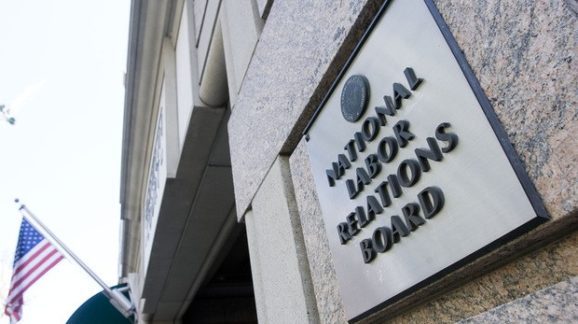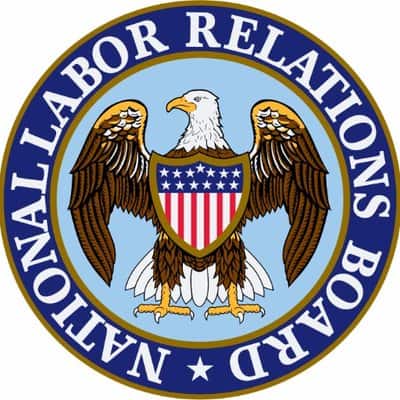National Labor Relations Board Member Cleared of Ethics Conflict

 Republican appointees to the National Labor Relations Board (NLRB) have become the target of an ongoing campaign by Democrats to silence their voices and ability to administer the law.
Republican appointees to the National Labor Relations Board (NLRB) have become the target of an ongoing campaign by Democrats to silence their voices and ability to administer the law.
Since Republicans took a majority at the NLRB, Democrats have been trying to manipulate ethics rules to pressure Republican members into recusing themselves from important cases before the board.
These unwarranted ethics charges have already done damage. Early in the Trump administration, the Democrats were able to torpedo a decision that would have restored the traditional joint employer standard because of ethics allegations. The Obama-era joint employer decision threatens to put countless franchise business owners and contractors out of business.
Thankfully, the NLRB is still attempting to address the regulatory uncertainty caused by the Obama-era joint employer standard. On September 14, the NLRB issued a notice of proposed rulemaking that would essentially restore the joint employer standard to the traditional direct control standard.
Unsurprisingly, Democrats took issue with the NLRB decision to address the joint employer confusion via rulemaking. In a letter to NLRB Chairman John Ring, Sens. Elizabeth Warren (D-MA), Bernie Sanders (I-VT), and Kirsten Gillibrand (D-NY) expressed concerns that the agency is issuing a regulation on joint employer standards “in order to evade the ethical restrictions that apply to adjudications.” The senators also requested that the NLRB “reconsider this decision and refrain from initiating a rulemaking process on the joint employer standard.”
But last week, the Democratic campaign to cast a cloud over the agency and block it from overturning Obama policies hit a snag. The NLRB’s Designated Agency Ethics Officer cleared NLRB member William Emanuel to participate in the joint employer rulemaking.
Emanuel’s ability to participate should never have been in question. First, the NLRB’s adjudicative decision to overturn the Obama joint employer standard should not have been vacated and Emanuel should have been able to participate. As I previously wrote:
In a report, NLRB Inspector General David P. Berry determined Emanuel should have recused himself from the Hy-Brand case, ostensibly because his involvement violated Executive Order 13770, which requires Board members to not participate in “any particular matter involving specific parties that is directly and substantially related to [their] former employer.”
That opinion from Berry is highly suspect at best because there is no precedent or legal basis that supports the ethics standard Berry applies in his report. He stated Emanuel should recuse himself because the Hy-Brand deliberation was somehow a continuation of an entirely different case that Emanuel’s former law firm had litigated.
Second, rules for conflict of interests and recusal are different for adjudication than rulemaking. NLRB Chairman John Ring told Bloomberg Law, “Though members are required to sit out cases involving their former clients and law firms for two years after joining the board—and perhaps some cases raising the appearance of a conflict—they generally don’t have to recuse themselves from drafting regulations that apply broadly across the country.”
As explained in the Nuclear Regulatory Commission’s “Summary of Standards of Employee Conduct Regulations 5 CFR 2635”:
“Particular matters involving parties” are only particular matters that involve a special party or parties. This typically involves a specific proceeding affecting the legal rights of the parties or an isolatable transaction or related set of transactions between identified parties. This would include a specific contract, grant, license, enforcement action, adjudication, or court case. It does not include matters of general applicability, such as rulemaking, policies, or standards. 5 CFR 2635.502(b).
Receiving the okay from the Designated Agency Ethics Officer is an important step forward. However, with Democrats taking control of the House of Representatives it is expected that they will exercise their oversight authority in an attempt to delay or block the joint employer rulemaking. This is par for the course because Democrats have made clear that they do not want the NLRB to adjudicate or issue rules, they want to obstruct the Board.
Hopefully, in the next session of Congress, Republicans will defend the NLRB’s right to administer the National Labor Relations Act and overturn Obama-era policies that harm worker opportunity and small business.